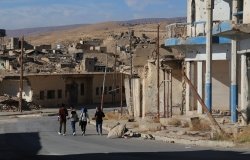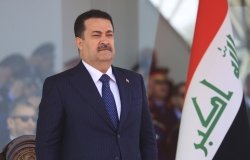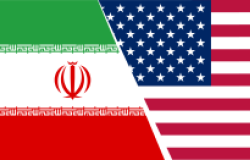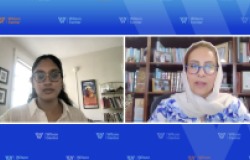Saudi Arabia: Strategic Partnership with the United States
Professor Saleh Al-Mani, Dean of the College of Administrative Sciences and Political Science Professor at King Saud University, Saudi Arabia
Overview
In a luncheon meeting co-sponsored by the Middle East Programs of the Wilson Center and the Carnegie Endowment for International Peace, Saleh Al-Mani began his presentation by emphasizing the historically strong relationship between Saudi Arabia and the U.S. He pointed out that, contrary to popular perception, this relationship is significantly more complex than a simple economic-political tradeoff where, in return for U.S. protection, Saudi Arabia functions predominantly as a stable supplier of oil at a reasonable price. In fact, the lasting bond between the two countries stems from a shared innate desire for peace and stability in the Middle East.
Based on an ethos of trade and exchange, according to Al-Mani, the Arabian Peninsula has served as a cornerstone of stability since ancient times and this role is consequently firmly entrenched in its collective memory. As a trading nation, Saudi Arabia continues to rely on peaceful regional and global interaction in order to thrive and the country is thus determinedly invested in ensuring sustained harmony. To counteract potential menacing factors, Saudi Arabia has partnered with global players such as the U.S. with whom it maintains critical dialogue and a constant exchange of ideas.
Al-Mani asserted that Saudi Arabia and the U.S. must work jointly to address four main issues that currently threaten to destabilize the region: terrorism, the Arab-Israeli conflict, Iraq, and Iran's nuclear ambitions. Al-Mani emphasized the widespread implications of escalating sectarian strife and the importance of the integrated nation-state as the principal source of identity. In regard to Iran, he stressed the hazards of nuclear activity near the Gulf, a vital source of food and water for the Gulf States, and the gravity of a possible U.S.-Iran or Israel-Iran confrontation.
However, despite a shared Saudi-U.S. outlook in regard to the above-listed issues, Al-Mani raised political and economic shortcomings. He regretted the abandonment by the U.S. of its traditional peacemaker role by refusing to call for a ceasefire in the current crisis in Lebanon. He expressed that, although Saudi Arabia issued a statement blaming Hezbollah for the current hostilities, this does not entitle Israel to unrestrained aggression and destruction. In addition, notwithstanding its substantial trading relationship with Saudi Arabia, the U.S. is only moderately supporting and partaking in the country's current economic boom, a significant opportunity to further solidify existing ties.
In conclusion, Al-Mani expressed optimism in the future of the Saudi-U.S. partnership. Mechanisms established after King Abdullah's visit to the U.S. in 2005, which include the creation of a joint ministerial committee and three subsidiary working groups on issues such as counterterrorism, consular affairs, and education and human development, carry the potential for strengthening this alliance guided by a vision peace.
Hosted By

Middle East Program
The Wilson Center’s Middle East Program serves as a crucial resource for the policymaking community and beyond, providing analyses and research that helps inform US foreign policymaking, stimulates public debate, and expands knowledge about issues in the wider Middle East and North Africa (MENA) region. Read more
Thank you for your interest in this event. Please send any feedback or questions to our Events staff.










